|
In light of the expected Hamilton DVD/Blu-ray announcement tomorrow (EDIT: it was just an app) I've been prompted to explore a question I've been asking for years, which is why don't we see more pro-shot musicals on DVD? Yes we're all familiar with the well-known recordings of the Les Mis dream cast, multiple Sondheims, and more recently Shrek, but why aren't producers jumping on the opportunity to film their productions for commercial release? I get that there are up-front costs of production but they're negligible compared to the potential return. And investing in musicals is all about playing the long game, especially considering "shows generally take 8-12 months to recoup if ticket sales are good". There's also the question of bootlegs. How many of you tried to get a copy of the Hamilton bootleg that temporarily made the rounds? Composer/lyricist/book-writer Lin-Manuel Miranda famously took a Tumblr user to task for requesting a copy, but is any bootleg ever really going to replace a live performance? It's not like people are trying to avoid going to the theatre by watching bootlegs instead! And the few I've seen are such low quality that they often don't do the show justice anyway. Certainly not enough that I won't buy a ticket to see the actual show when I can. People are creating/seeking bootlegs because they're interested in and excited by the work. Interest and excitement that could be turned into potential $$$ for the producers/writers. I started thinking about this when we first heard of The Book of Mormon. I had friends make the trip to Broadway specially so they could laud themselves over us lowly peasants because they got to see the show before anyone else in Oz. And the same has been happening with Hamilton, Waitress, etc. But what about those poor sods left behind? I'm sure they'd love to be able to see the show before it hits their local town and special trips to NYC aren't a viability for everyone. But I bet they'd happily buy a DVD to sate their appetites in the meantime. And then, when the show finally does get here, I guarantee they'll still buy a ticket to see it. So that's the thing. If there already was a Hamilton DVD every single musical theatre nerd in the world would without a doubt have a copy. And then they'd also buy a ticket to see the show at the earliest opportunity, only adding to the producer's income. Hamilton was originally rumoured to be heading to Australia this year but now it's more likely going to be next year at the earliest. However the producers could have been making money off us already, and continue to do so until we're finally graced by its presence, if there was an official, high-quality DVD that, to paraphrase Lin, allowed us to "hear it [and see it] RIGHT" while we wait. So what do you reckon? Would you buy a DVD of a show and then not buy a ticket to see it in person? Which shows would you love to see on DVD? Let us know in the comments 🙂 As singers we need to take extra care of our voices during these Winter months, as losing them can impact not only our hobbies, but also, for many of us, our livelihood. So here’s an updated version of tips I've posted previously on my Facebook page to ensure you come out the other side of any sickness with the healthiest voice possible. Bonus tip: cover your mouth when you cough or sneeze because ew 1. See a Vocal Health First Aider We're your "first port of call for any voice user with a problem" 🙂 2. Grab a straw Semi-occluded vocal tract (SOVT) exercises have been shown to facilitate "quicker and better healing in the cells and tissues [of] the larynx and vocal folds" (Titze 2017). If that's a completely new term for you check out this video by Tom Burke: However, in the case of vocal haemorrhage you'll be looking at "total voice rest for 2 weeks" (Titze 2017). If you're not sure and would like to confirm exactly what you're dealing with (recommended), refer to tips 1, 3, 5, 7, and 9. If you do find yourself on vocal rest, invest in a mini whiteboard or some similar writing aid, although these days it’s just easier to just use the notes app on your phone. Alternative you can check out Zazzle.com for some helpful apparel. For a comparison between resonant voice use and vocal rest click check out Resonant Voice Exercise is Better than Vocal Rest? (Knickerbocker 2017). 3. See a VHFA Have you booked yet? Go on 🙂 4. Water, water, water At least 2 litres a day. Anything you drink doesn’t directly hydrate your vocal folds. Think about it – if you inhaled the fluids you drink you’d drown. That goes for water, tea, coffee, alcohol – none of them have a direct effect on your vocal folds. Imbibed fluids have to be absorbed by the body before they can hydrate anything, and this can take anywhere from 2-24 hours. I tell my students to hydrate today for tomorrow. That way you’re sure your body has absorbed all of the fluids you’ve given it, plus it prompts you to be hydrating every day. 5. See a VHFA If you're feeling unwell and don't want to come into a physical studio in these post-COVID times never fear, we can help you remotely/online! 6. Lozenges are a BIG NO NO! Local anaesthetics numb the throat. If your throat is numb, you have to push harder to feel anything. Analgesics (Panadol, etc) are better as you still have sensation although they also thin the blood, increasing your chances of haemorrhage. Refer to tips 1, 3, 5, 7, and 9 if you're not sure but definitely NOT lozenges. Similarly, be wary of decongestants. Yes they dry the mucus in your sinuses so you can breathe, but they also dry the lubricating mucus in your throat that your vocal folds need to function properly. They’re OK for overnight use if you need to sleep but be careful during the day. I personally prefer to just ‘glug’ through things if I get sick, rather than drying everything out – including the stuff I need. To quote Tim Minchin, my “placebo of choice” when sick is good ol’ olive leaf extract and a vitamin C, zinc, and echinacea combination. If things get chesty, refers to tips 1, 3, 5, 7, and 9, who will most likely prescribe you with some sort of suppressant (to stop the cough) and a mucolytic to thin the mucus, making it easier to bring up (apologies for the mental image). Mucolytics thin the mucus without drying it up, meaning the ‘good’ mucus in your throat is still present. But ultimately I’m no MD – check with your pharmacist (at least) before starting any treatments. 7. See a VHFA Vocal Health First Aiders are qualified mentors who can provide insight into what might be going on with your voice as well as giving you practical skills to take away/use at home that may be enough to get you back where you vocally need to be - click here to learn more! 8. Steam / Nebulisation Remember: the ONLY WAY to DIRECTLY hydrate your vocal folds is via inhalation. Anything you swallow (such as teas) takes a different path (the oesophagus) whereas the larynx is part of your respiratory system that uses the trachea. (Smoke takes the same path, which is why it’s so bad for singer’s instruments. If you’re a singer and you’re still smoking, quit). Therefore, your options to directly hydrate your folds are: Option 1 - Steam
Alternatively you can use hand-held options like the famous Bosisto's Steam Inhaler (found in every dressing room ever) or the Vicks version. One argument against steaming asserts that steam droplet are too big to be absorbed by the vocal folds/there's a lower chance of them actually reaching the folds as they're more likely to get stuck on/absorbed by other parts of the vocal tract. That being said, I personally find steaming to be quite calming/soothing but each to their own. Whatever you do make sure the steam is not too hot as "forcing high heat air (steam) in without allowing for the body’s natural inclination to cool it to body temperature would exacerbate oedema (inflammation) – not useful!” (Gupta 2015). Option 2 - Nebulisation One solution to the larger droplets issue is nebulisation. Two studies by Kristine Tanner et al. found that "nebulized Isotonic Saline has the potential to reverse the perceived adverse effects associated with laryngeal dryness in singers, whereas nebulized sterile water was inadequate in addressing these effects" (2010), and "Nebulized isotonic saline improves voice production based on acoustic and patient-based ratings of voice severity" (2015). The trick here is to use 0.9% isotonic saline: "The latest findings indicate that using a nebulizer with isotonic saline can reduce your Phonation Threshold Pressure (PTP) as well as your Perception of Phonatory Effort (PPE), meaning it takes less pressure for your vocal folds to create sound" (via VocalMist). Now, there's a few options on the market. I was personally going to order the VocalMist (US$98 + US$15/month for 'refills') when I found the exact same (albeit it unbranded) unit on Wish for AU$60 (at time of purchase). Then I jumped on eBay for some saline and was good to go! However, stats and quotes aside, internationally renowned otolaryngologist Dr Anthony F. Jahn cautions against the use of nebulisers “for maintenance", arguing that they should be used for "specific symptoms only and, ideally, with some input from a medical professional". 9. See a VHFA Still not sure we're right for you? We'll do our best to guide you in the self-management of your vocal troubles and that's often enough for many singers to get back to where they need to be vocally but if we're still worried/your concerns appear to exceed our scope of practice we'll refer you onto a vocal physiotherapist or speech pathologist for specialist treatment (but we're usually a good starting point and sometimes 2-3x cheaper than other options) - click here to get in touch with one of our Vocal Health First Aiders now! 10. Rest as much as you can and then start using your voice slowly and gently once it’s feeling better Sometimes the recovery process can take as long as 4-6 weeks, especially if things progress as far as laryngitis/you end up losing your voice completely. Take care and don’t push things too quickly, even if your voice feels like it can – if you’re unsure, consult your vocal health specialist. Happy, healthy singing 🙂 The quadruple threat isn't new to Broadway / the musical theatre. The John Doyle-directed Sweeney Todd had them in 2005, as did the Raúl Esparza-led Company in 2006, and more recently the Roundabout Theatre Company's Cabaret had a live, onstage Kit Kat Klub band in 2014. There are certainly other and earlier examples, however with the recent announcement of Beautiful: The Carole King Musical heading our way (thanks to Michael Cassel), and other recent shows on Australian shores, this appears to be a trend that should be of interest to Australian performers. But what actually is a quadruple threat? Before we answer that question, let's brush up on the definition of a triple threat. In the sporting world a footballer is a triple threat if they're good at passing, kicking, and running. In the theatre a triple threat is a performer who can sing, dance, and act equally well across all three skill areas, possibly with only slight preference to any particular one. A quadruple threat adds one further skill - the ability to play a musical instrument. Jessie Mueller as Carole King in Beautiful: The Carole King Musical Some musicals that require / could use quadruple threats include Jersey Boys, Godspell, and SPAMALOT. In fact when I MD I like to try and get my performers to either learn / play the segments of potential onstage music (such as the piano cadenza in "You Won't Succeed on Broadway (if You Don't Have Any Jews)" and the parlour songs in Sweeney Todd). Recent examples of Melbourne performers playing instruments live on stage include the entire cast of Once (varied instruments), saxophone in StageArt's Saturday Night Fever, Luigi Lucente in Pursued By Bear's tick, tick... BOOM! (piano), and Amy Lehpamer and Cameron Daddo in The Sound of Music (guitar). Some of these parts could probably be taught to a performer during the rehearsal process (such as the simpler guitar chords in Sound of Music) - others require a more solid musical foundation, one that can take years to develop. The quadruple-threat cast of Once General benefits of music reading / playing include:
More specific benefits for musical theatre performers include:
The quadruple-threat cast of John Doyle's Sweeney Todd You've probably noticed that most of the instruments in the accompanying photos are pianos and guitars. This makes sense as they're both one of the 'chorded' instruments I was referring to earlier - instruments that can play chords / more than one note at a time. But if you're not currently a pianist / guitarist or they don't interest you, don't despair - included in the mix are violins, 'cellos, clarinets, a double bass, trumpet, piano-accordion, and even a tuba! A resourceful MD / director may call upon a variety of instruments that suit their needs and in those situations it's better to have any instrument than not.
So if you're keen to start tickling some ivories or strumming some strings, check out your local music teachers' association (the VMTA here in Victoria) or ask your friendly neighbourhood accompanist - if they can't teach you I'm sure they'd be able to put you onto someone who can. So go forth, learn an instrument and make yourself a better, smarter, and ultimately more employable performer! (from the one-and-only Walter White): AKA Bryan Cranston Here's the video, with a transcript below: tl;dr you're not going there to get a job, you're going there to do your job “Well, the best advice for fellow actors is this: Know what your job is. About 18 years ago I had this cognition that I realized I was going into auditions trying to get a job. And that simply wasn’t what I’m supposed to be doing. An actor is supposed to create a compelling, interesting character that serves the text. You present it in the environment where your audition happens, and then you walk away. And that’s it - everything else is out of your control. So don’t even think of it, don’t focus on that. You’re not going there to get a job. You’re going there to present what you do: you act. And there it is and walk away. And there’s power in that, and there’s confidence in that. And it’s also saying, ‘I can only do so much.’ The decision of who might get a job is so out of your control that really, when you analyze it, it makes no sense to hold on to that. That, to me, was a breakthrough, and once I adapted that philosophy I never looked back, and I’ve never been busier in my life than once I grabbed onto that. That’s it. Good luck.” Ask yourself this question: Do you enjoy performing? If you're reading this post I'm assuming the answer is yes. :) But what about auditions? Do you enjoy auditions? It's possible that some of you out there do, but most people cringe at the thought of having to audition compared to performing. So what's the difference? Since I started audition coaching I've been frequently surprised by clients who have shown up not yet knowing the material. Your audition is in a week! Imagine if we hadn't done this and you'd gone to your audition still not knowing the material?! Then we just have to resign ourselves to the fact that it's not the most productive use of the time but it's still better than nothing. Even in that situation, one of the most valuable things about the coaching process is practicing working with your audition nerves. Nerves are a normal and important part of performing, yet we somehow learn to work with/use our performance nerves to the benefit of our performance and some people even view them as positive and helpful. So why do audition nerves get the better of us compared to performance nerves? The answer is preparation Think about it - by the time you reach the theatre you've most likely been rehearsing for up to three months and (hopefully) know your stuff inside-out and back to front. You've learned your lines, you know the chore, you've been practicing on the set - you're all good to go. If you take out the costumes, hair, blocking, etc., the amount of preparation you put into just singing your song in a performance is actually only a very small part of that up-to-three-month process. In the 'stand-and-deliver' context of an audition, where you only have to focus on the singing, that amount of preparation doesn't actually feel like much in comparison. Yet people keep cramming and panicking because they're not as prepared for their audition as they would be for a normal performance because they're not actually treating it as a performance. This is Scar. Scar is prepared. Be like Scar. "Be Prepared". :) And you enjoy performing in front of an audience - you said so yourself. Audiences and audition panels aren't really that different when you get down to it. In reality they both judge your performance, the only real difference is that there's something riding on the panel's thoughts and you hear the outcome of their opinions (not saying that the audience doesn't have opinions, you just don't necessarily hear them). So treating the panel as an audience allows you to connect with them and communicate - to perform - just the way you would with any other audience. Remember what I said about audition panels being lazy - they don't want to see a 'fixer-upper' they can work with for a few months. They want a performer: Give them a performance Performing in the audition room should be no harder than performing in front of an audience, as long as you're prepared. If you spend the same amount of time preparing for your audition (remember, the singing part alone really isn't that much) as you do for a performance it then becomes a performance which a) makes it easy(er), and b) makes it fun.
If you do as much singing preparation for your audition as you do for a performance you'll go in there as confident as you normally do when you're performing and can treat it as just that - a performance - which is exactly what the panel wants to see. :) I have two standard tips for picking the perfect audition song/s first time, every time. I'll lay them out first, and then I'll explain why. My Two Standard Tips for Picking the Perfect Audition Song/s First Time, Every Time* (*because is there any another option?) Tip 1: Songs in the style of the show are often in the style of the composer, so why not start with some of their other works? Nothing shows you can sing <insert composer name here> like singing <insert composer name here>! Tip 2: Think about the character you're auditioning for - what are their wants? Their troubles? Their dreams? Once you've worked that out, try and find a song from another show that relates to your character's situation somehow. E.g., if you were auditioning for Eponine in Les Mis you could try "I'm Not That Girl" from Wicked - see the connection? That shows me, as a member of the audition panel, that you've put some time and effort into your song selection, and thought about the character (remember what JRB said?), rather than someone who always sings the same two songs, no matter what show they're auditioning for. Now, before I get to the 'why', I have a question: what happens in the callback that you don't get to do in the audition? Any ideas? You get to sing one of the actual songs sung by the character you're auditioning for That's exactly what you DON'T get to do in the initial audition, but remember - audition panels are lazy. They don't want a project they can work on for a few months, they want a performer they can slip into a costume and slap on the stage. So, why my two tips? They give you the opportunity to let the audition panel see you perform in the context of the character that you wouldn't normally be able to do until the callback That's it. Rather than singing two completely random songs, that, sure, may be great for your personality/voice, help the panel 'see' you in the role as quickly as possible by tailoring your songs to fit that role. It sounds ridiculous to actually have to say it, but we see people making this mistake all the time. My favourite story involves an auditionee singing a reggae version of "Under the Sea", accompanying themselves on the guitar, in an audition for Into the Woods. It probably comes as no surprise that they didn't get in. But what if I'm not auditioning for a role, I hear you ask? Well I say, why not? Doesn't hurt to aim high. Better to aim for the lead and get it or end up with a supporting role than not try at all. I recently had a student cast in a (hard and lead) role he didn't even audition for and he worked his butt off for three months and totally nailed it. You'll never know unless you try, and all that. Yeah but the person who wrote this show hasn't written any others, so your first tip is flawed OK I must admit this is sometimes the case. So then it's time to get creative. If you can't use something from one of the composer's other works, aim for Tip 2 - find a song that suits the character's situation, then contrast it with one that shows off your voice. Or if you don't like anything from the composer's other shows, some writers, such as Jason Robert Brown and Duncan Sheik, have written solo albums that, although technically not musical theatre, still reflect their own particular style. If you look even further, Bobby Lopez (Frozen, Avenue Q) wrote the music for the Scrubs musical episode and ps classics released an amazing posthumous album of Jonathan Larson's original demos and other material^ (Wikipedia can be your friend with this stuff). There's always something out there if you look hard enough. And one final bonus tip is to look at other material the performer of the original song has sung. Much like finding your 'box', most of Idina/Sutton's songs have a similar sound/style so that may be another good starting point when thinking about songs that suit your character. :) What about developing an audition/repertoire book? I guess it doesn't hurt, but I can pretty much guarantee, no matter how many songs you end up including, it will never have the exact perfect pair you need for that particular show. Sure, it's possible, but I highly doubt it. Better to prepare individually for each and every role, tailoring your songs to the exact character using the tips above. But if you do want to take the audition book path make sure you have something from every era/style: pre-1950s ballad, pre-1950s upbeat, post-1950s ballad and upbeat, comedy number, belt extravaganza, etc. Better to cover all bases and make sure these are songs that you regularly revisit/keep fresh in your mind as it's no use having the book if you can't all on it with as little as 24 hours' notice.
^ Wearing Someone Else's Clothes and Jonathan Sings Larson both feature early songs cut from final versions of the shows - worth a listen purely for interest's sake. I have a few friends auditioning for The Book of Mormon in Melbourne at the moment, and was chatting to one of them after this afternoon's call. The casting brief clearly states "There are no roles in this production for Caucasian females" and today's auditionees were clearly told that, if they didn't suit the 'look' of the show (male or female), they wouldn't be in the room for long. As much as many performers think they can 'wow' the panel with their abilities, even if they don't fit the character/s they're looking for, the reality is it's pretty unlikely. The conversation reminded me of a masterclass I attended a few years ago from multi-Tony-Award-winning composer/lyricist Jason Robert Brown where he laid down the following realities of auditioning for him / a Broadway show: Look at him. This guy knows what he's talking about. Realities of Auditioning for Jason Robert Brown / a Broadway Show Reality 1: From the moment your foot passes that doorframe if you don’t LOOK like the character they want they won’t even listen to the first note you sing. Reality 2: If you DO look like the character they want they'll listen to the first note you sing. Then, if you don’t SOUND like the character they want they won’t listen to another thing. Reality 3: If you LOOK and SOUND like the character they want you will have their full attention for the remainder of the audition. You may think that sounds harsh but it's simply the reality of our industry, and I for one am thankful that JRB chose to be honest and direct about it without perpetuating the fantasies many performers have. He went on (I'm paraphrasing)… Audition Song Choice "Why would you sing a song by a character whose background, race, colour, or some other feature outside of your control differs from your own? As beautiful as it may be, no white man is ever going to sing “Let them Hear You” in a production of Ragtime – even practicing it is a waste of your time. Likewise, no white woman is ever going to be cast as Kim in Miss Saigon, so singing “I’d Give My Life For You” isn’t going to help you either." That's actually Sylvie Paladino. Amazing what they can do with makeup these days. Photo: Joan Marcus 'Boxes' JRB also spoke about 'boxes'. All performers fit into a 'box' and working outside of that box is not going to get you cast. Why sing “I Cain’t Say No” when you’re a belter, have only ever been cast as a belter, and only ever will be cast as a belter? Similarly, if you’re a character actress, why sing “Don’t Cry for Me Argentina” when you’re only ever going to be cast as Mae in Lippa’s The Wild Party or Columbia in Rocky Horror? Find your box and work to your strengths. Look at the greats – Patti LuPone is Patti LuPone in everything she does; Bernadette Peters is the same and, closer to home, so is Anthony Warlow. They found their box and they worked it. You’ll never see Warlow playing Mark Cohen in RENT and the idea itself is laughable. It would truly be a square peg in a round hole. Not sure how to find your box? Look at other performers whose roles you know you're capable of/suited for. Most of Idina/Sutton's songs have a similar sound/style so that may be another good starting point when thinking about songs/roles that may suit you. Anthony just heard about Jersey Shore: The Musical. Photo: Quentin Jones Audition Preparation Finally, JRB said the same thing you always hear when the pros talk about auditioning but, for some reason, it regularly seems to be ignored: KNOW THE CHARACTER YOU ARE AUDITIONING FOR. It sounds simple but if more people truly understood the role and their own abilities I can guarantee that fewer and fewer characters would fit into their box. And that’s not such a bad thing. Consider these two outcomes:
1. You do one audition for a role that fits within your box and you were close to perfect for but missed out to the only other auditionee truly suited to the role, or 2. You do thirty auditions for no roles that actually suit you and beat yourself up after every single one because you hadn't thought about your suitability for the role and couldn’t actually appreciate that you weren’t cast because it’s a role you never should have considered auditioning for in the first place. I know which one I’d prefer. :) |
Categories
All
Archives |

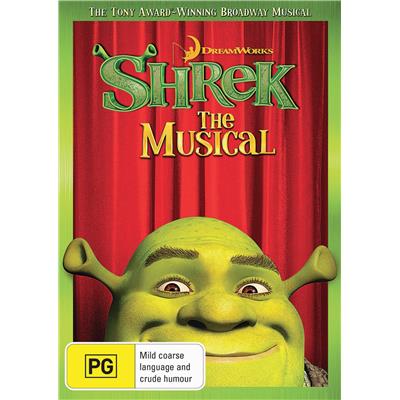

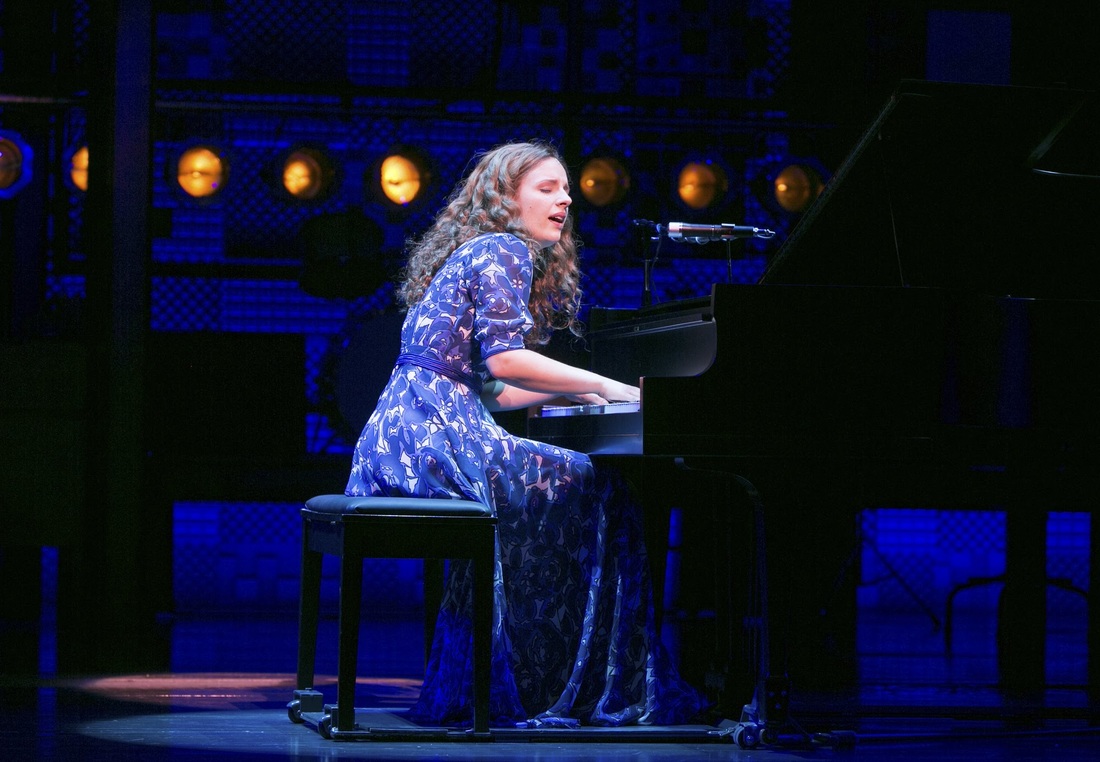
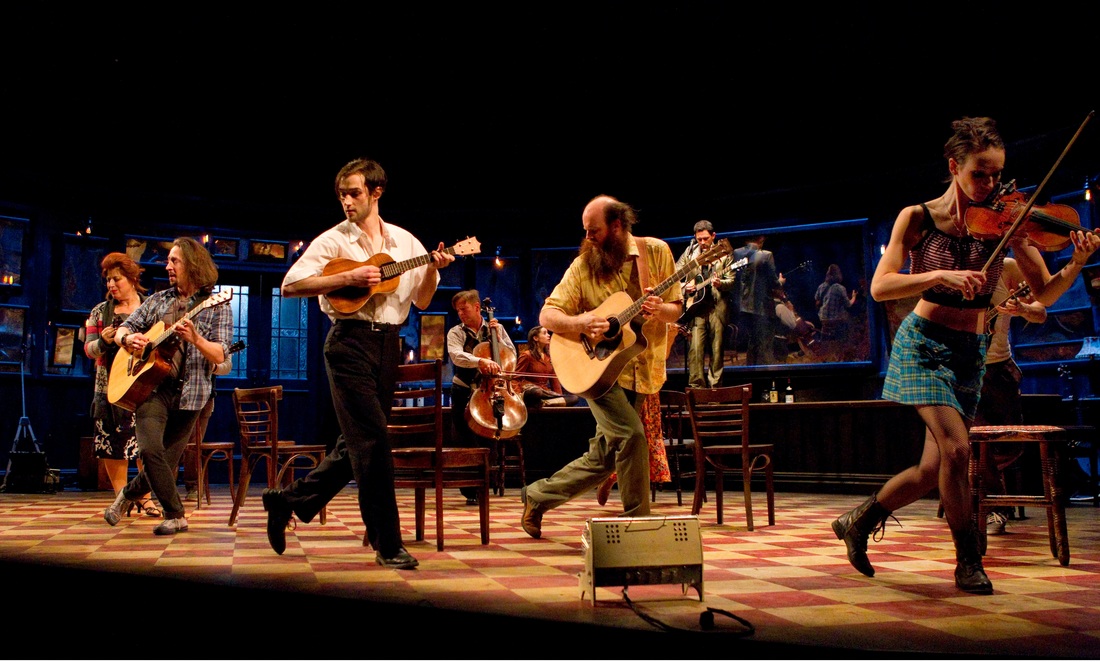
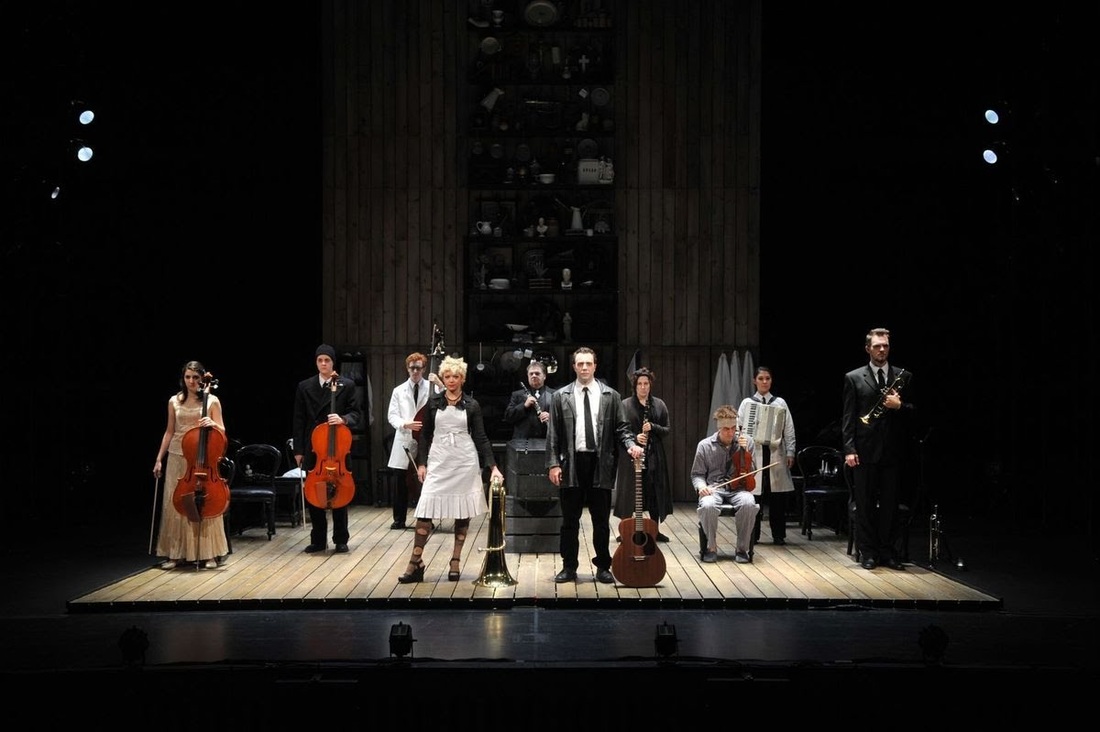

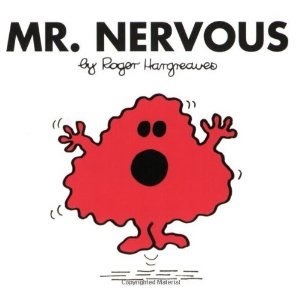

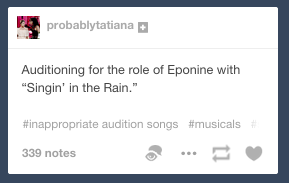
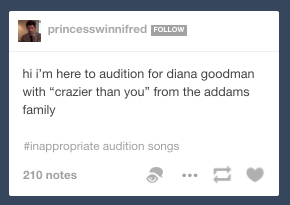
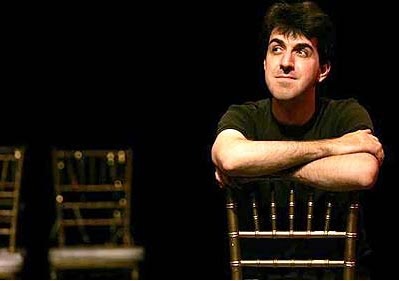
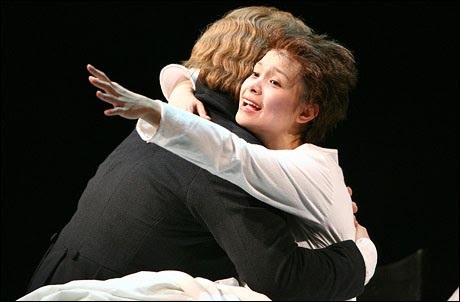

 RSS Feed
RSS Feed